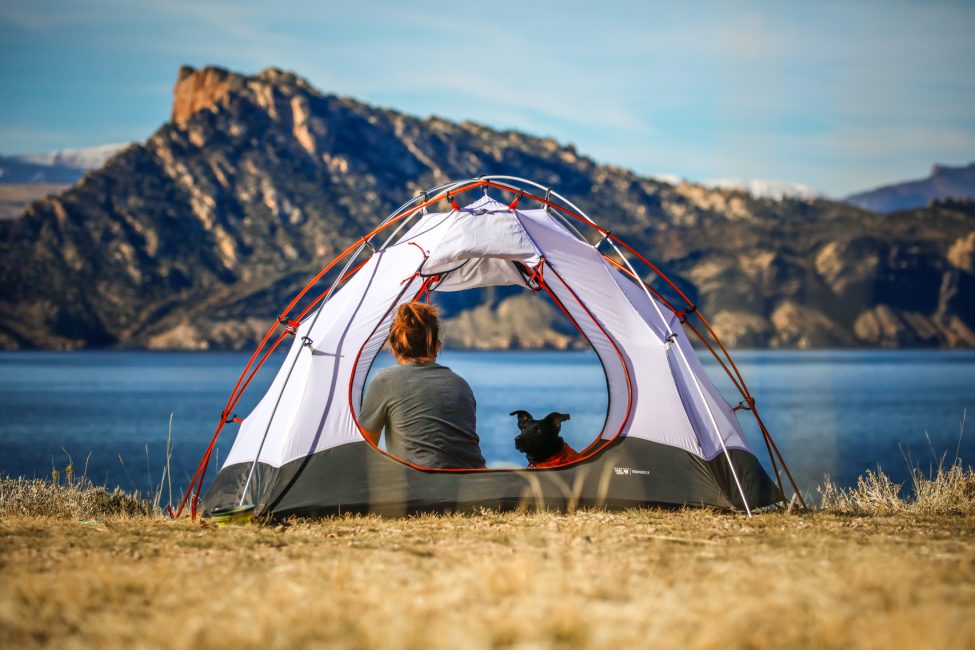
Health Tips for Camping Trips by Minnie Alcantara
 Camping is always a fun way to get family and friends to enjoy the great outdoors. Here are some health tips to keep your camping trip safe and healthy.
Camping is always a fun way to get family and friends to enjoy the great outdoors. Here are some health tips to keep your camping trip safe and healthy.
Wash hands often. Soap and water are your essentials to cleanliness. If water is not present at the campsite, bring it with you. Use anti-bacterial hand sanitizers if water is not available. Set up a hand washing station if there is a spigot available at your campsite. Always wash your hands after using the restroom, before handling any meals and especially when switching from prepping raw to cooked foods.
Keep foods separated and packed tightly. Use separate insulated coolers for drinks, produce and meat, and pack foods in waterproof bags. Small coolers will be easier to carry and this will reduce the risk for cross-contamination and the possibility of food-borne illnesses among the food. Separating the foods will keep the bacteria from being able to migrate to all the others. Make sure to separate cooked foods from the raw foods. Foods should be cooked to the proper temperature (160 degrees) and chilled promptly. Leftover foods are only safe when stored in a cooler with ice in it, otherwise discard of any leftover foods to avoid any food-borne illnesses.
Protect against carbon monoxide poisoning. Carbon monoxide is an odorless and colorless gas that causes sudden illnesses and death. Do not use fuel-burning appliances in tents or enclosed spaces, for this will cause dangerous levels of carbon monoxide build up. Symptoms of carbon monoxide poisoning include headache, dizziness, weakness, nausea, vomiting, chest pain, and confusion.
Bring adequate bedding and clothing. Hypothermia is the lowering of the body’s core temperature caused by over-exposure to cool or cold air or water. Campers should bring extra clothes and bedding as well as consume extra calories during their camp trip to prevent hypothermia. Symptoms of hypothermia include intense shivering, ability to perform complex tasks is impaired, fatigue, poor coordination, immobile and fumbling hands. Use a plastic cover under the tent to keep dry. Wear layers of light-weighed, light-colored, and loose-fitting clothing.
Practice safe physical activities. Camping is the perfect time to be active with physical activities such as hiking, biking, walking and swimming. Make sure to bring protective gears such as helmets, paddings, comfortable and sturdy shoes and life jackets. Know your limits to avoid injuries during activities and avoid hiking or swimming alone. Take a shower before and after swimming. Do not swim if you are experiencing diarrhea and do not swallow the water you are swimming in.
Avoid wild animals. Avoid touching, feeding and getting near wild animals and watch them from a safe distance in their natural surroundings. Some wild animals carry diseases dangerous to humans such as rabies. Keep a close eye on family pets and their whereabouts. Never feed the bears and do not leave food where bears may be attracted to it for your group’s safety.
Pack insect repellants. Ticks, mosquitos and other insects can cause certain diseases that include West Nile virus from mosquitos and Lyme disease from ticks. Make sure to pack insect repellants containing 20% DEET and even apply the repellent to clothes to keep ticks from attaching to them. Wear light colored clothing and check ticks daily. Remove the tick immediately and completely with tweezers. Wash the wound with antiseptic soap and apply antiseptic cream to the wound with a bandage.
Be protected from the sun. Make sure to apply sunscreen to be protected from skin cancer, wrinkles and premature skin aging. It is important to bring broad-spectrum sunscreen and lipscreen with the minimum of SPF 15. Sunscreen should be applied even on days that are not sunny because UV rays are not blocked by the clouds and you will still get exposed. Apply the sunscreen 15-30 minutes before going out in the sun to give the lotion the opportunity to penetrate the skin. Reapply every couple of hours and more often in you are swimming or sweating. Rest often in shady areas.
Stay hydrated. Dehydration occurs when the body loses excessive amount of fluid. Avoid dehydration by always carrying water or sport drink products during any activity. Be prepared and bring water filter or water purification tablets as back up. Always plan ahead and bring enough water for your trip, boil water at the camp site, or if purifying water using the tablets, keep in mind that this may take several hours. Drink plenty of alcohol-free and sugar-free fluids to prevent heat-related illnesses during hot days. Don’t wait until you are thirsty to drink fluids.
Plan ahead. Check the weather forecast before leaving for your destination. Learn about the security measures at your camp site and inform friends and family of your plans. Plan your meals ahead of time and how you are going to prepare the food and what equipment will be needed. Pack a first aid kit, flashlight, compass or GPS, maps, plenty of blankets, clothes, batteries, food, water and medications. Make sure to check for ticks and insect bites when returning from the trip.
These are just some tips to make your camping trip as safe and enjoyable as possible. Happy and safe travels!
The information provided is for general interest only and should not be misconstrued as a diagnosis, prognosis or treatment recommendation. This information does not in any way constitute the practice of medicine, or any other health care profession. Readers are directed to consult their health care provider regarding their specific health situation. Marque Medical is not liable for any action taken by a reader based upon this information.
